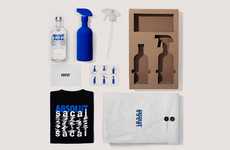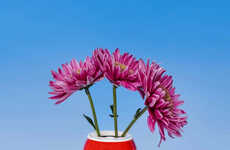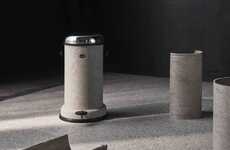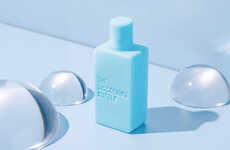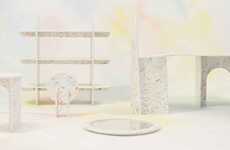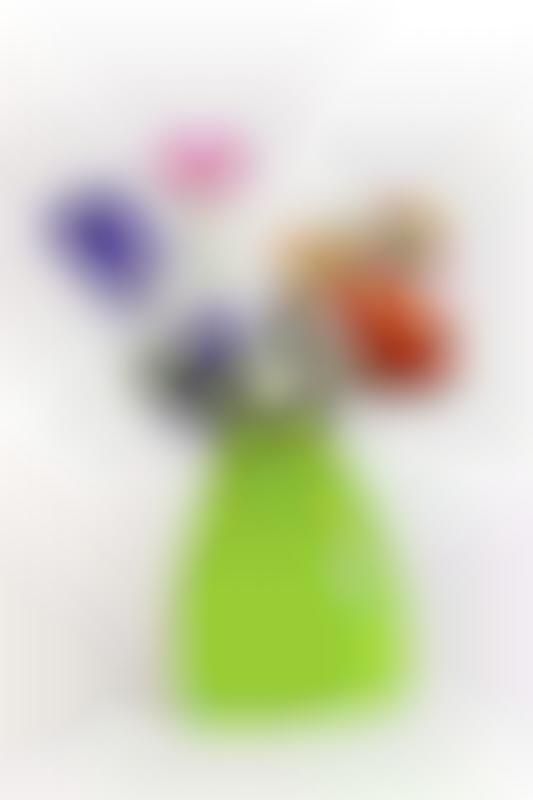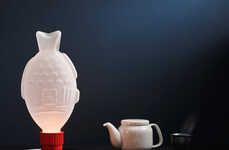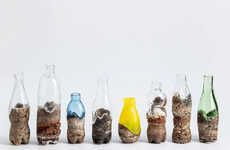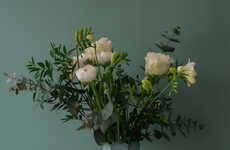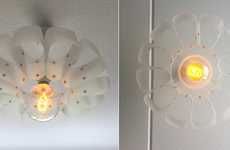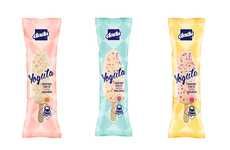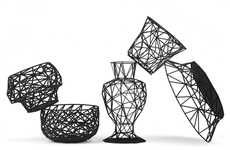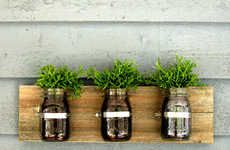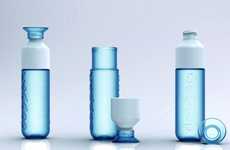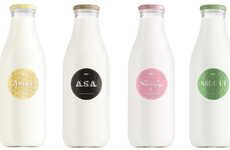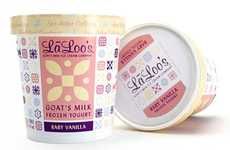
Rubbish Design Creates Cute Products Out of Unexpected Materials
Michael Hemsworth — April 10, 2013 — Eco
References: rubbishdesign.nl & recyclart.org
It's only when we take a step back and really look at the one-use products around use that we can begin to understand the perplexing issue of disposability, and that's something that Rubbish Design looks to combat with their quirky lineup of products.
The detergent bottle flower vase in particular is a truly unique piece of upcycled art that makes use of and comments on a previously disposable container. Laundry detergent is usually associated with harmful phosphates that pollute water systems and deter natural growth. Making the container into a vase is a witty way of looking at cultural waste and allows us to think more critically about our consumption.
Rubbish Design also makes a number of other innovative designs such as coffee can light fixtures and other wacky, yet beautiful pieces.
The detergent bottle flower vase in particular is a truly unique piece of upcycled art that makes use of and comments on a previously disposable container. Laundry detergent is usually associated with harmful phosphates that pollute water systems and deter natural growth. Making the container into a vase is a witty way of looking at cultural waste and allows us to think more critically about our consumption.
Rubbish Design also makes a number of other innovative designs such as coffee can light fixtures and other wacky, yet beautiful pieces.
Trend Themes
1. Upcycling - The trend of upcycling waste materials such as detergent bottles into functional objects creates opportunities for new product lines and eco-friendly solutions.
2. Sustainable Design - The trend of creating minimalist designs using eco-friendly materials such as up-cycled objects, bamboo, and recycled paper offers a new artistic and branding opportunity for designers.
3. Circular Economy - The trend of creating a closed-loop system of reusing products and minimizing waste inspires businesses to find new ways of utilizing waste materials and creating products that are sustainable and affordable.
Industry Implications
1. Eco-friendly Products - Eco-friendly product manufacturers can use upcycling and sustainable design trends to create new product lines and reduce manufacturing waste, thereby providing eco-conscious customers with more choices.
2. Interior Design - Interior designers can leverage upcycling and sustainable design trends by incorporating these unique and eco-friendly objects and reducing the environmental impact of their projects.
3. Waste Management - Waste management companies can benefit from upcycling and circular economy trends by developing new business models that recycle and reuse waste materials, thereby reducing the environmental impact of landfill sites.
3.4
Score
Popularity
Activity
Freshness

